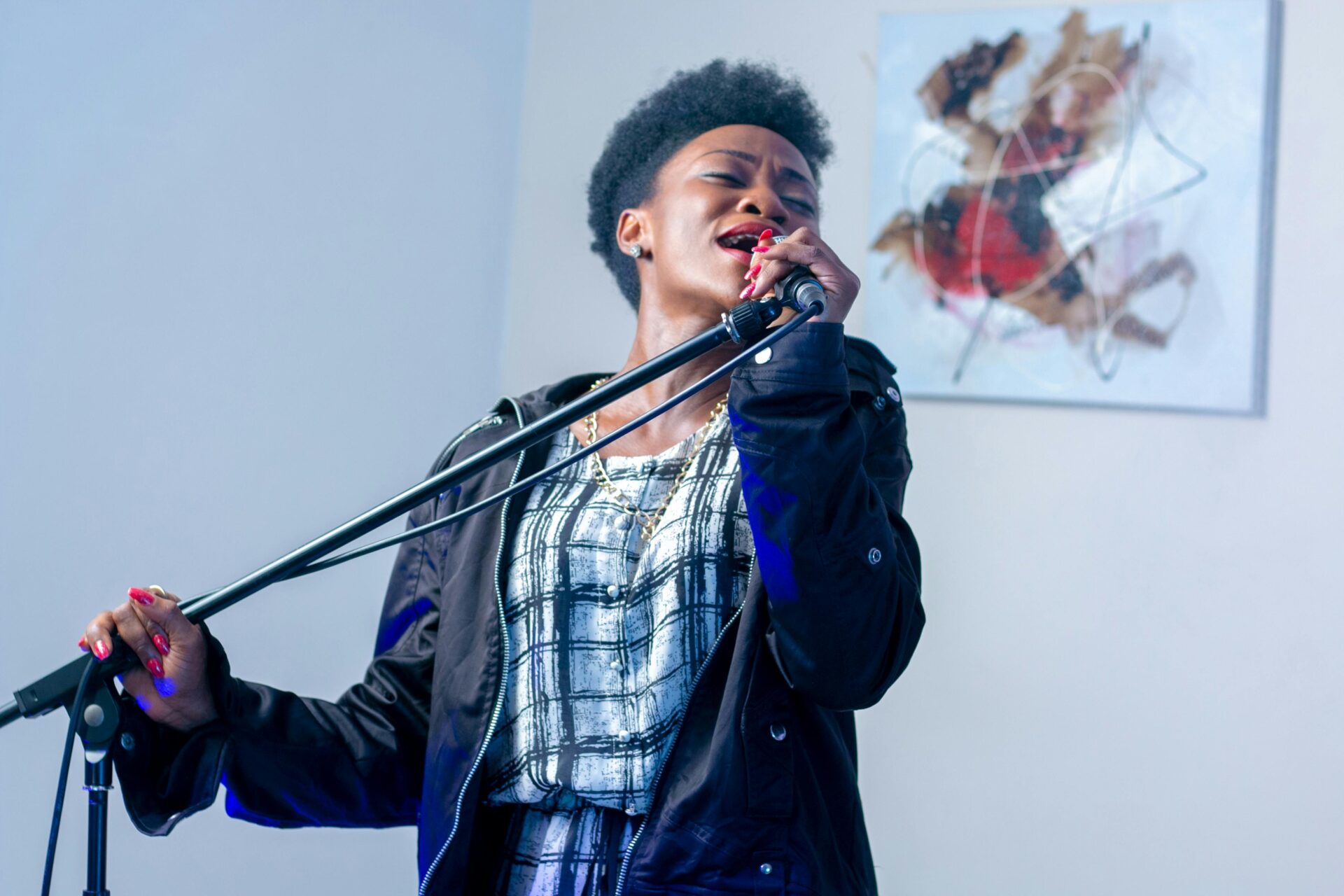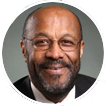
Photograph by Papa Yaw via Pexels
Male clergy should be advocates for women in ministry
I have been an advocate for the aspirations of women seeking careers in Christian ministry throughout my professional career, stretching back to 1976 when I was called to be Senior Pastor of St. Paul Baptist Church in Montclair, NJ. This is not a result of some recent conversion because of exposure to womanist theology or the feminist movement within the last thirty or forty years, though I am glad those perspectives have found their place within the canon of Christian theology. My support and advocacy for women in ministry is primarily because my first pastor was a woman: Mary G. Evans of Cosmopolitan Community Church, located (then and now) at 5249 Wabash Avenue in my hometown of Chicago, Illinois. I was born in 1948, and her voice was the first preaching voice I ever heard. It is no surprise to me that her sermon entitled “The Wages of Sin is Death” is included as an entry in Daughters of Thunder: Black Women Preachers and Their Sermons, 1850-1979, edited by Bettye Collier-Thomas.[1]
As a result of that early exposure to a woman preacher and pastor, there has never been a time when I was persuaded by some of my male colleagues that preaching and pastoring is a male-only enterprise. For over 45 years, I have not only served as teacher and doctoral degree advisor for scores of able and competent women, but I have been honored to preside and preach at the ordination of women into Christian ministry. I have hired women to serve as my associates at Antioch Baptist Church in Cleveland, Ohio where I served from 1987-2011. I have also recommended many of those women to serve as pastors of their own congregations, even though one of them had to leave the Baptist church to find a pastoral assignment.
Even more challenging, I have recommended and ordained a great many women to become members of the deacon board in a Black Baptist church. It seems that some deacons are willing to have a woman sit in the pulpit next to the pastor, sooner than having a woman sit with and work with them directly. I am not talking about women serving as a deaconesses, which in most churches means they are the wives of men serving on the Deacon Board. Nor do I mean women who serve in a congregation where there are two Deacon Boards, one for men where authority is preserved, and one for women for reasons I cannot comprehend except those men do not really want to view women as their partners in the leadership of the church.
The truth is, I never gave this issue much thought until I arrived at Union Theological Seminary in New York City in 1970 and at Abyssinian Baptist Church in that city in 1972. That was the first time I heard male students argue that women should not be enrolled in the seminary, and they certainly should not be assigned any pastoral role in a local church. It was during those same years that I first observed and then inquired about the absence of any female clergy as members of the Baptist Ministers Conference of New York and Vicinity. The absence of women was also noticeable when I joined the Baptist Ministers Conference of Newark and Vicinity when I went to my first pastoral assignment in 1976, and later when I joined the Baptist Ministers Conference of Cleveland, OH and Vicinity in 1987.
In each instance, I was told by my male colleagues that the Bible prohibited women from serving in Christian ministry. While hosting an annual session of the Progressive National Baptist Convention of New Jersey in the 1980s, I heard one of our pastors say that if his wife ever said to him that God had called her to the ministry, their next stop would be divorce court. He said that with his wife sitting in the front row of the sanctuary where all could see.
He and those who are likeminded on this issue base their view on what I consider to be an uninformed and parochial reading of 1 Corinthians 14:34ff and 1 Timothy 2:11ff. It is clear to me that the arguments of my male clergy colleagues have nothing to do with God or the Bible, and everything to do with gender bias on the one hand and long-existing cultural norms on the other. The argument is that Paul said “I do not permit a woman to preach…” The problem, of course, is that Paul did not say “I do not permit a woman to preach,” which is a very specific task. What Paul actually said is “I do not permit a woman to SPEAK” (lalein in the Greek) and also that “women must KEEP silent in the church” (I Corinthians 14:34). This begs the question of whether there is any church where women are not allowed to speak and must remain silent? Does this mean women cannot speak in or teach Sunday school, or Vacation Bible School, or lead the Baptist Youth Fellowship, or ask a question at a church meeting, or offer a testimony or lead a prayer at the midweek Prayer Meeting?
In Galatians 3, Paul clearly asserts that the three most impenetrable social boundaries of the Ancient Near East, race, class, and gender, are forever breached when people enter into the fellowship of the church. I am certain that those who resist women serving in the ministry would fight to the death to end discrimination based upon race or class which might touch upon their own lives.
In 1 Timothy 2:12, Paul states that he does not permit a woman to have authority over a man. How do we square that admonition from a first-century patriarchal culture in Palestine, where women were not considered equal to men in any way, with a 21st-century secular culture in the United States where women occupy almost every position available to a man? This includes positions as judges, lawmakers, university presidents, corporate executives, and the highest-ranking members of all branches of the military.
Does any Black Baptist pastor in Virginia, for instance, actually believe that Captain Janet H. Days, who is the Commanding Officer of the Norfolk Naval Station, the largest naval base anywhere in the world, can have authority over 4500 military and civilian personnel from Monday through Saturday, but must be silent when she attends a church service on or off that base? I suspect my male colleagues would be falling over one another to have her bring remarks if she ever attended one of their churches. So much for not speaking and being silent! As New Testament scholar Demetrius Williams entitled his book on women in ministry, “An End to This Strife!”[2]
What I find interesting is how “silent” my male colleagues are when it comes to Phoebe, of whom Paul writes in Romans 16:1: “I commend to you our sister Phoebe, a servant of the church in Cenchrea.” That word servant in the Greek New Testament is diakanos or the basis for our modern-day deacon. That is the same Greek word Paul uses in 1 Timothy 3:8ff when he talks about the qualifications for being a deacon, which in many of our churches is presumed to be a male-only office.
Things become even more challenging for those who oppose women in ministry when we consider Paul’s assertion “There is no Jew or Greek, slave or free, male or female, for you are all one in Christ Jesus” (Galatians 3:28 HCSB). In this text, Paul clearly asserts that the three most impenetrable social boundaries of the Ancient Near East, race, class, and gender, are forever breached when people enter into the fellowship of the church. I am certain that those who resist women serving in the ministry would fight to the death to end discrimination based upon race or class which might touch upon their own lives. As Demetrius Williams puts it, “African American churches can no longer advocate racial equality on biblical grounds and at the same time support sexism in the churches using the same Bible.”[3]
My former doctoral student Jamie Eaddy Chism offers an assessment of Black male clergy who support civil rights but who oppose women in ministry: “If your fight for liberation stops once you are free, it was not liberation you wanted, it was privilege.”[4] The words of Johnetta Cole seem to be true: “The centuries of slavery and racism, and the struggle to overcome them, have not informed the humanity of Black men when it comes to Black women…the oppressive experiences of Black men have not deterred them from being oppressors themselves.”[5]
Dr. Marvin A. McMickle is interim executive minister, Cleveland Baptist Association, American Baptist Churches, USA. He served as president of Colgate Rochester Crozer Divinity School, Rochester, New York, from 2011 to 2019.
The views expressed are those of the author and not necessarily those of American Baptist Home Mission Societies.
[1] Bettye Collier-Thomas, Daughters of Thunder: Black Women Preachers and Their Sermons, 1850-1979, Jossey-Bass, San Francisco, 1998.
[2] Demetrius K. Williams, An End to This Strife: The Politics of Gender in African American Churches, Fortress Press: Minneapolis, MN, 2004.
[3] Ibid, p. 71.
[4] Jamie Eaddy Chism, unpublished Doctor of Ministry dissertation, Colgate Rochester Crozer Divinity School, 2020, quoted from Let the Oppressed Go Free: Exploring Theologies of Liberation, by Marvin A. McMickle, Judson Press: Valley Forge, PA, 2020, p. 144.
[5] Johnetta Cole, Gender Talk: for Women’s Equality in African American Communities, Random House: New York, Kindle loc. 257, quoted in Let the Oppressed Go Free by McMickle, p. 144.



